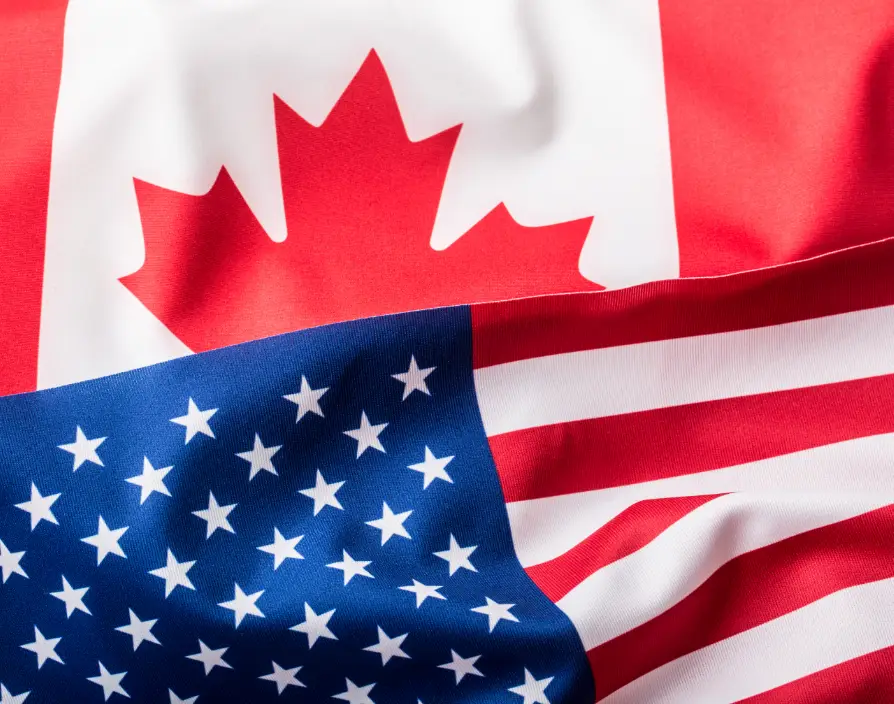Here’s a comprehensive comparison to help Canadian franchisors navigate the U.S. regulatory landscape with confidence.
Regulatory framework: Federal consistency vs. provincial variation
United States: Franchise regulation in the U.S. is primarily governed by the Federal Trade Commission (FTC) through the Franchise Rule, which applies nationwide (including all U.S. territories). The FTC mandates that franchisors provide a Franchise Disclosure Document (FDD) to prospective franchisees at least 14 clear days before any agreement is signed or payment is made by a franchisee.
In addition to federal oversight, several states—such as California, New York, and Illinois, etc.—impose their own registration and disclosure requirements. These state-specific laws can involve additional filings, fees, and compliance measures, creating a two-tiered system of federal and state regulation.
Canada: In contrast, Canada regulates franchising at the provincial level. Currently, six provinces have enacted franchise-specific legislation, with Saskatchewan’s law soon coming into effect as well:
- Ontario (Arthur Wishart Act)
- British Columbia (Franchise Act)
- Alberta (Franchises Act)
- Manitoba (Franchises Act)
- New Brunswick (Franchise Disclosure Act)
- Prince Edward Island (Franchise Act)
Each of these provincial laws require franchisors to provide a Franchise Disclosure Document (FDD), though the specific requirements and enforcement mechanisms vary. Provinces without franchise-specific legislation rely on general contract and commercial laws, creating a patchwork regulatory environment. The Canadian province of Quebec does not have franchise-specific legislation, although many other areas of legislation routinely address commercial agreements including franchise agreements.
Franchise Disclosure Document (FDD)
United States: The U.S. FDD is highly structured, consisting of 23 mandatory items that cover every aspect of the franchise relationship—from initial fees and estimated startup costs to litigation history and territory rights. This level of detail ensures transparency but leaves little room for customization.
Importantly, while franchisors are not required to provide financial performance representations (FPRs), if they choose to do so, the information must be substantiated and presented within the FDD.
Canada: Canadian disclosure laws require franchisors to provide “all material facts,” but there is generally no legally required format as with the U.S. FDD. This gives franchisors more flexibility but also introduces ambiguity about what must be disclosed. Failure to provide comprehensive disclosure can trigger severe consequences, including the right for a franchisee to rescind the agreement within two years if disclosure was deficient. For instance, what might be considered “material” in one instance may not be in another instance.
Cooling-off periods and rescission rights
United States: Under the FTC Rule, the U.S. requires a 14-day disclosure period before a franchisee can sign an agreement or pay any fees. However, once the agreement is signed, rescission rights are limited and typically governed by contract or state law. That said, enforcement of franchise disclosure laws by the federal and state governments can be far-reaching.
Canada:
Canadian franchise laws generally require a 14-day disclosure period as well, but they go further in protecting franchisees. If a franchisor fails to provide a disclosure document, or if the disclosure document is “fatally flawed”, franchisees in regulated provinces have up to two years to rescind the agreement and claim damages (i.e., undo and sue the franchisor).
Additionally, in some provinces, franchisees may rescind within 60 days even for minor disclosure deficiencies. This provision underscores the need for meticulous compliance.
Key Takeaway: Canada’s rescission rights are broader and more franchisee-friendly than in the U.S., increasing the legal risk for franchisors who fail to meet disclosure obligations. In Canada, the primary legal risk involves franchisee rescission. In the U.S., franchisors are most wary of regulatory and enforcement action by government agencies.
Financial Performance Representations: Optional vs. Implicit Expectations
United States: In the U.S., providing financial performance data is optional, but if a franchisor chooses to share projections or earnings claims, they must be clearly documented and substantiated within the FDD (known as an “Item 19” disclosure). Non-compliance can lead to regulatory penalties and franchisee claims. From a business standpoint, most successful franchisors make a substantial effort to include financial performance data in their FDD to aid in the franchise sales process, and this practice is increasingly becoming industry-standard.
Canada: Canadian laws don’t explicitly address financial performance representations in the same structured way. However, any earnings claims could be considered a “material fact” that must be disclosed, if available. Ambiguity in this area can expose franchisors to legal challenges if franchisees feel misled by informal or implied financial projections. The default in most instances is to not include any financial performance data in a Canadian FDD.
Relationship Laws: Franchisee Protections
United States: Franchise relationships in the U.S. are primarily governed by the terms of the franchise agreement and common law principles. While some states have “franchise relationship laws” that address termination, renewal, and transfer rights, these protections are limited compared to Canada.
Canada: Canadian franchise laws provide statutory protections that cannot be waived. Most notably, a franchise cannot waive its right to sue a Canadian franchisor for failing to comply with franchise disclosure obligation. Canadian franchise laws also provide for a duty of fair dealing, which requires both parties to act in good faith and in accordance with reasonable commercial standards. This provision can significantly impact how disputes are resolved and how franchisors manage their franchisee network.
This article is provided courtesy of Spadea Lignana Franchise Attorneys, a leading national franchise law firm dedicated to supporting franchisors across the United States.








